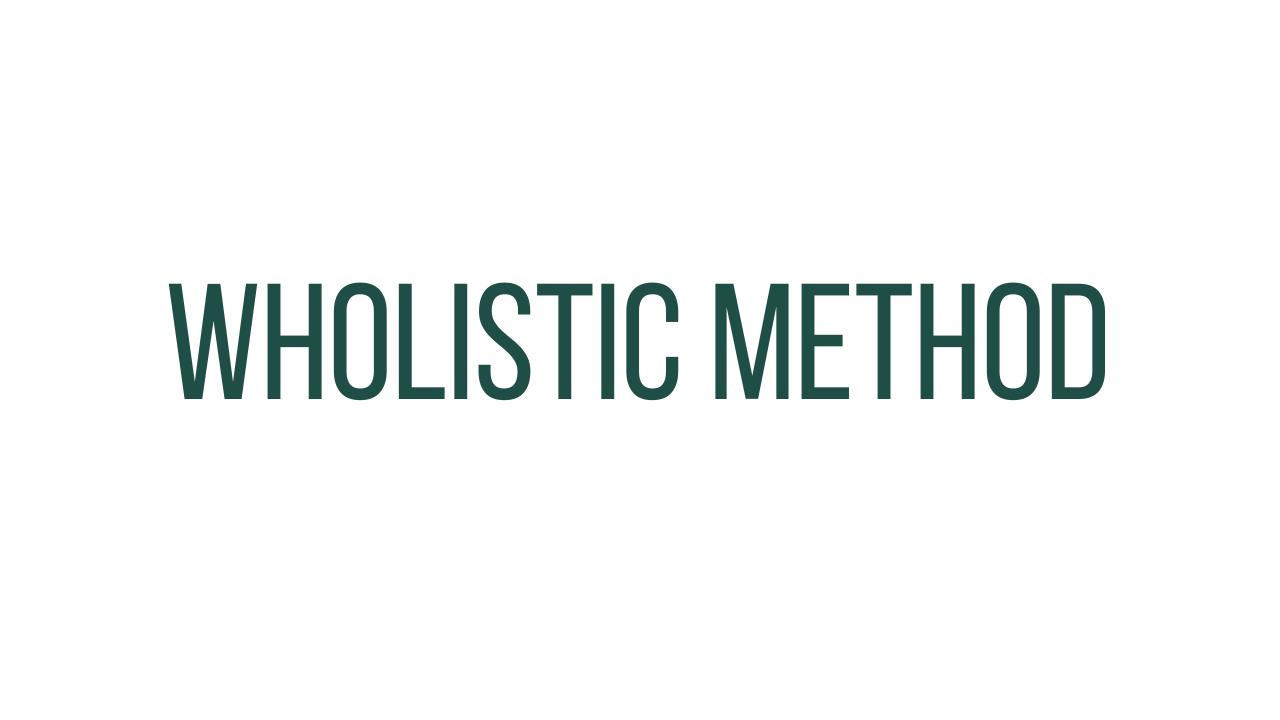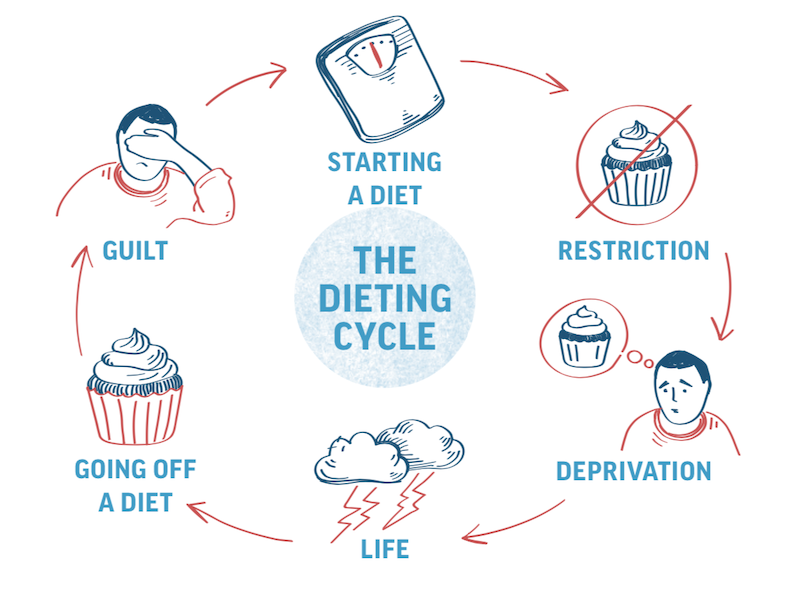Defining the ‘Diet Cycle’ & How to Finally Break Free
The diet cycle is a vicious one. Fueled by restriction, shame and a diet-obsessed culture, the diet cycle can keep you trapped in a pattern of yo-yo dieting, restriction and bingeing. Read this post to learn how we get trapped in the diet cycle, and how to FINALLY break free…
Intro
If you’re like 97% of other dieters, you’ve probably had multiple weight loss attempts that didn’t go exactly according to plan…
Despite that, you may be looking back on the diets that you’ve done in the past that have “worked,” albeit temporarily; convincing yourself that it was your lack of willpower that did you in or maybe your lack of total compliance. It’s possible that you’re mourning the loss of your thinner body, or not quite ready to give up the dream of it. You may still feel like there’s another diet out there that just might work for you, or, perhaps you’re intrigued by the idea of Mindful Eating; you just want to come back to it, AFTER you’ve lost the weight first.
Before discussing the diet cycle, I think it’s important to note that it’s OK if you still want to lose weight. A common misconception about Mindful Eating is that you CAN’T want to lose weight. This is simply untrue and unsympathetic to the immense pressures on people, especially those who are overweight, to be thinner (also, if you didn’t desire weight loss at all, you’d probably already be a pretty intuitive eater!).
Mindful Eating exists to provide you with an option to not spend your life trapped in the diet cycle. It gives you a set of tools to turn to when you want to take care of your body without trying to manipulate its size. And when you understand how one gets trapped in the diet cycle, it’s easy to look back on a history of “failed” diet attempts with self-compassion, rather than shame. Regardless of your weight, size, or shape, you deserve to have a more peaceful relationship with food and your body and to have the freedom to engage with Nutrition from a place of self-care, not punishment! You deserve to live your life free from the dieting cycle.
What is the Diet Cycle
The diet cycle is a trap that many people get caught in when they try to lose weight, keeping them stuck in a cycle of chaotic eating and weight cycling.
In the beginning of the diet cycle, when you’re just starting a new plan, things often feel really good. The diet still feels relatively “easy” to follow at this point, as the biological and psychological effects of restriction haven’t yet set in. You may be losing some weight, and that weight loss may be reinforced through compliments from others. It’s common to experience a bit of a “dieter’s high” when starting a new plan, where you’re preoccupied with the excitement over how you think it will positively impact your life.
But with time—it could be days, weeks, or months— deprivation builds and makes that diet harder to stick to. The body fights back against restriction, ramping up hunger hormones in a desperate attempt to get itself fed. Gradually, you’ll have to rely on increasing amounts of willpower to stick to the plan.
Then something tough and unexpected pops up, something like, oh I don’t know, A GLOBAL PANDEMIC. You find that the diet isn’t flexible enough to accommodate for times when life isn’t smooth sailing. Think of all the time that goes into the planning, food prep, shopping, and workouts—not to mention the mental energy that goes into sticking to a diet. With your time and mental energy in short supply, you eventually slip. If you’re like most of the chronic dieters I work with, that slip turns into the kind of eating that feels really out of control. This is not because you actually are out of control; it’s all that built-up deprivation making you feel out of control.
I like to use a pendulum analogy to explain this to my clients. On one side of the pendulum is restriction; on the other side, binging and overeating. Dieting pulls the pendulum all the way back towards restriction, and what happens when you let go? Eating swings back wildly towards binging and overeating.
From the outside looking in, it’s easy to see that the problem is the restriction; that’s what causes the overeating and binging that feel so uncomfortable. But the dieter rarely sees it that way. After all, controlled, restrictive eating gets praised in our culture as discipline and taking care of one’s health, whereas overeating is seen as laziness or a lack of self-control. Yet, instead of blaming the diet, the dieter blames themselves and feels immense guilt and shame for the perceived dietary indiscretions. In reality, what the dieter perceives as overeating is rarely actual overeating; often it’s simply compensating or making up for the energy that their body hasn’t been getting enough of!
Despite all this, overeating or binging is seen as the problem, whereas the restriction that fueled it isn’t. Therefore, the way of dealing with the shame and the discomfort coming from these perceived dietary indiscretions is to go back on a diet and start restricting again. And so, the diet cycle begins all over again.
Does this sound familiar to you?
How to Break Free of The Vicious Diet Cycle
Intuitive eating lets you take an off-ramp from this never-ending dieting cycle. Instead of trying to “fix” your body and to address eating and health concerns with plans and restriction, intuitive eating gives you alternative ways of coping. Instead of pulling that pendulum back towards restriction yet again, you’re now taking your hands off the pendulum and letting it settle in the middle. That looks like honoring your hunger, by tuning in to hunger cues and eating in response, or may be following a flexible meal plan designed by your dietitian, especially if you are in recovery from an eating disorder or disordered eating. It also means trying to give yourself permission to eat all the foods you enjoy. It’s in this middle that there’s space to discover what it looks like to fuel your body adequately with pleasurable foods that make you feel good.


